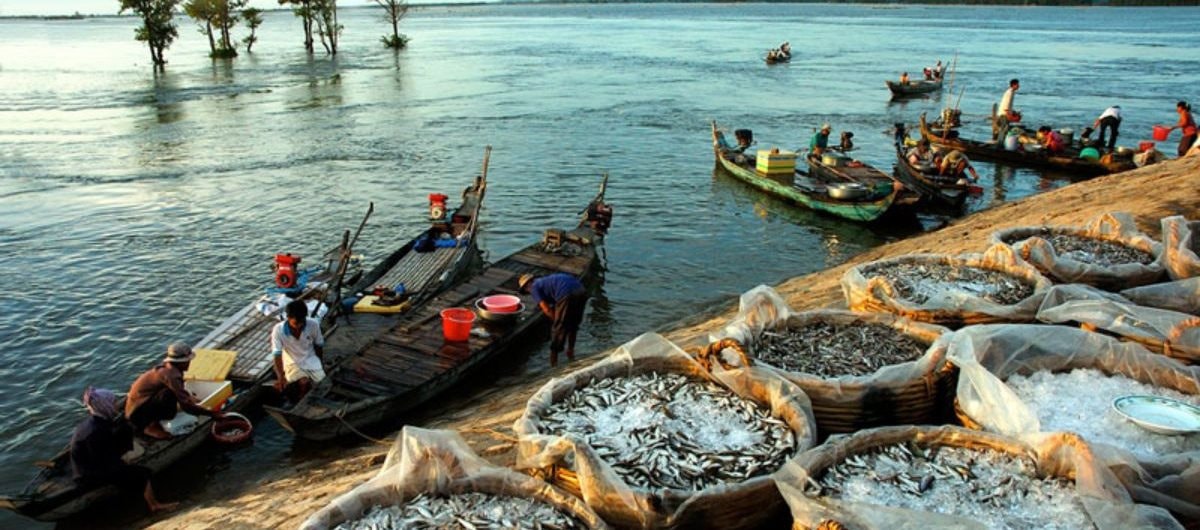Logistics Infrastructure: The "Open Door" for Mekong Delta Agricultural Products to Reach the World
English - Ngày đăng : 13:44, 10/10/2024
Economic Significance of the Mekong Delta
With a total area of nearly 40,000 km² and a population of about 20 million, the Mekong Delta plays a crucial role in Vietnam's economy. This region is the largest producer of rice, fruit, and seafood in the country, contributing approximately 50% of the national rice output, 70% of fruit, and 65% of seafood exports. Provinces such as Tien Giang, Vinh Long, Can Tho, An Giang, and Kien Giang are well-known for their large agricultural outputs.
However, for agricultural products from the Mekong Delta to compete in international markets, modern and efficient logistics services are key. This requires the region to have robust transportation and warehousing infrastructure to handle large volumes of goods, ensuring product quality reaches global consumers.
Infrastructure and Transportation Limitations
.jpg)
.jpg)
One of the biggest challenges in Mekong Delta is the road transport system. Although it boasts an extensive network of rivers, road connections between provinces and major seaports are still limited. National highways and expressways linking Mekong Delta with Ho Chi Minh City—Vietnam's largest logistics hub—remain incomplete. For instance, while part of the Trung Luong - My Thuan - Can Tho expressway has been completed, it is still insufficient to meet the growing demand for agricultural transportation.
Additionally, the seaport system in the Mekong Delta is underdeveloped. Major ports like Cai Cui Port (Can Tho) and Tran De Port (Soc Trang) are currently operating below their designed capacity and lack the capability to handle large-scale export goods.
Lack of Comprehensive Logistics Planning
Another significant issue in Mekong Delta L is the absence of a unified regional logistics development plan. While there are localized development plans in each province, there is a lack of coordination and synchronization across the region. This results in fragmented resource allocation, investment, and underutilization of the area's potential.
Logistics Development Opportunities in the Mekong Delta
Despite facing many challenges, the Mekong Delta also holds great potential for logistics development. First, the increasing demand for agricultural exports is a key driver for developing logistics infrastructure. The advancement of modern logistics technologies, such as cold supply chains and smart warehousing systems, will help preserve agricultural products better, thus increasing their value in export markets.
In addition, transportation infrastructure projects are gradually being implemented in the region, particularly expressways connecting Mekong Delta to major ports. The upcoming completion of the My Thuan - Can Tho expressway will provide a significant boost, allowing Mekong Delta’s agricultural products to reach international markets more quickly via seaports in Ho Chi Minh City and the Southeast.
.jpg)
.jpg)
Solutions and Future Directions
To promote the development of logistics in the Mekong Delta, decisive steps and long-term strategies are needed. First, completing and synchronizing the transportation network is a top priority. This includes speeding up the construction of expressways, upgrading national highways, and investing in bridges and roads to alleviate the burden on road transport.
In parallel, the development of seaports, especially those capable of handling large ships, will help reduce the load on ports in Ho Chi Minh City, thereby shortening the time needed for goods transportation. It is essential to encourage businesses to invest in modern logistics technologies such as automated warehouse management, product traceability systems, and cold supply chains.

Logistics services in the Mekong Delta currently face many challenges in terms of infrastructure and planning but also present numerous development opportunities. With the right investments in transportation infrastructure, a comprehensive logistics plan, and the adoption of modern technology, the Mekong Delta can capitalize on its potential to become one of Vietnam's most important logistics hubs. This will not only enhance the value of agricultural products but also contribute to the sustainable development of the entire regional economy.
